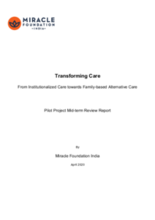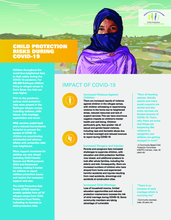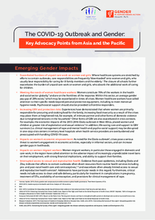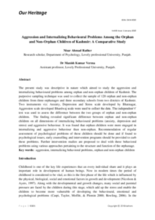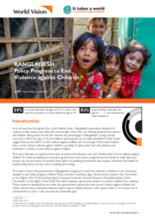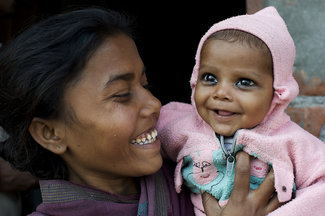

Displaying 291 - 300 of 753
This Internal Mid Term Review (MTR) was conducted after completion of Year 1 of a pilot project to create a replicable model for child care institutions (CCIs) to effectively implement Family Based & Alternative Care in India.
All over the world, the pandemic has turned children's lives upside down. In this episode of Save the Children Documentary, they share their stories.
This factsheet explores the impacts of COVID-19 on children in Rohingya refugee camps in Cox's Bazar, Bangladesh.
This resource outlines the gender impacts of the COVID-19 crisis, including the greater risk of exploitation and violence for women and children, as well as some recommendations for mitigating and responding to these challenges.
The present study aimed to study the aggression and internalizing behavioural problems among orphan and non-orphan children in Kashmir.
The Finding the Way Home documentary highlights the painful realities of the eight million children living in orphanages and other institutions around the world, telling the stories of six children in Brazil, Bulgaria, Haiti, Nepal, India and Moldova who have found their way into the care of loving families after spending periods of their lives in an institution.
The authors of this study conducted qualitative interviews of 69 caregivers in four countries: Ethiopia, Kenya, Cambodia, and India (Hyderabad and Nagaland), and across four religious traditions: Christian (Orthodox, Roman Catholic, and Protestant), Muslim, Buddhist, and Hindu. They asked respondents to describe the importance of religion for their becoming a caregiver, the way in which religion has helped them make sense of why children are orphans, and how religion helps them face the challenges of their occupation.
The main focus of this chapter is to define institutions, their objectives and the nature of services rendered.
This report reviews the government of Bangladesh’s progress to create the minimum conditions in law and policy needed to end violence against children.
This video from World Without Orphans tells the story of Anu, who was abandoned as an infant and grew up in a large institution in India, later opening her own home for orphaned and abandoned girls. Anu came to realize that this was not the best way to care for the children and began, instead, to work within the community to provide education, food, medical care, and a way for children to remain in families.

